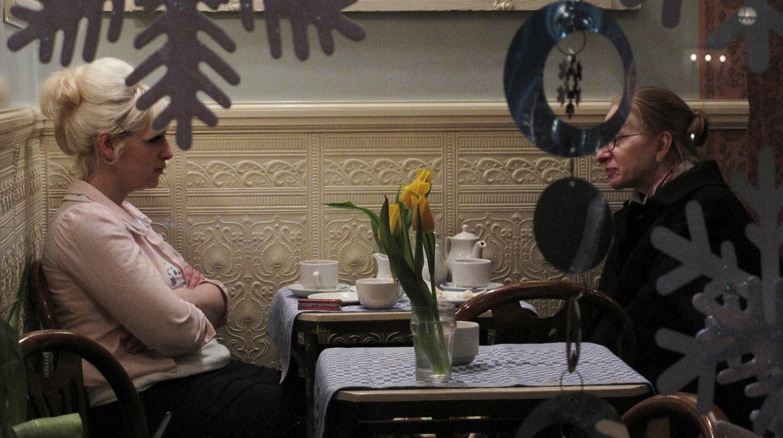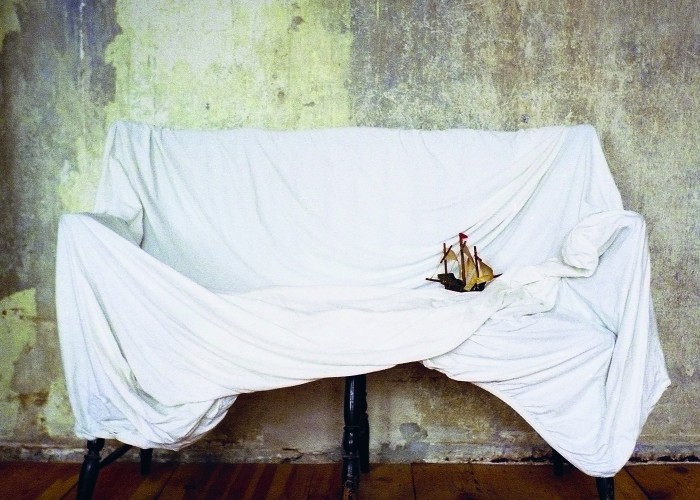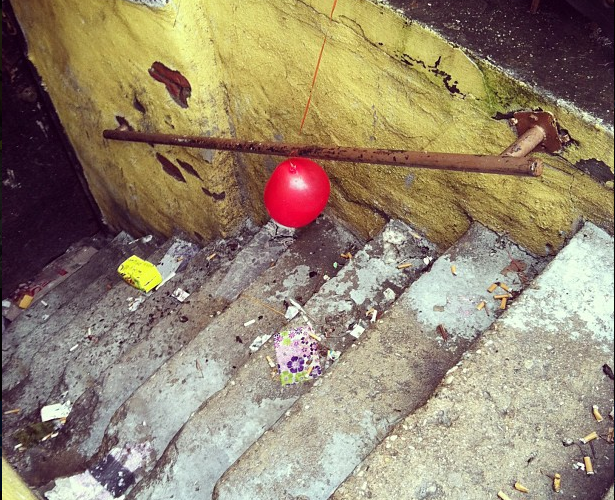The Mothers of Gustave Flaubert, Marcel Proust, and Jorge Luis Borges Meet in Heaven
Mary Gordon
An angel in a golden robe escorts the last of three ladies of a certain age into a well-appointed sitting room. It is tenderly lit; there are bowls of scentless cream-colored flowers on tables of a heartbreaking polish. Clearly arranged to the greatest possible conversational advantage are three upholstered chairs, covered in a lemon-colored silk. Two of the chairs are already filled; in one, a stoutish woman sits, an iron-colored bun on the top of her head, her hands folded quietly on her lap. Her face is contented; it would be wrong to say that she is smiling. The woman in the chair across from her has her hair done in a knot at the nape of her neck; threads of grey stand out in the chignon, but far fewer than her companions. The third, escorted by the angel, is tall, thin, wearing a straight skirt that comes two inches below her knees and well-cut shoes that the other women know instantly must be English.
“I would like to introduce you to Señora Borges,” says the angel. “Señora Borges, I have the honor to present Mme. Flaubert and Mme. Proust.”
“Enchantée,” says Señora Borges. “Naturally we will speak French.”
“I understand our sons know each other,” says Mme. Proust, who prides herself on her excellent manners.
“Yes, “ says Mme. Flaubert, “isn’t it strange that here, all books seem to have been written at the same time, and so although my Gustave could not have possibly read your boy’s books, and Mme. Proust, your son could not have possibly read Señor Borges, it doesn’t matter: they are reading each other now.”
“Good sons,” Señora Borges says, “and how they loved us.”
“Their lives were not easy, says Mme. Proust. “The life of a great writer can never be easy.”
“And my son was blind.”
“Mine was asthmatic.”
“Gustave suffered cruelty from his digestion. He was a very good uncle.”
“Marcel was a fond uncle as well. He worried that some of what he wrote might be disturbing to his dear niece. “
“Jorge adored his sister.”
“But not one of them a father.”
“Women were not good to Gustave.”
“Nor to Marcel.”
“I guess Jorge was the only one to marry. But the first one! Nightmare! At least he had the sense to come home to me. He was meant to be happy with the second one. I never knew her.”
“Marcel was very unwise in his choice of women. I believe that at a very early age he had his heart broken for good.”
Mme. Flaubert and Señora Borges exchange glances but say nothing.
“I suppose it was their love of beauty that led them astray,” says Mme. Flaubert.
“Probably what they needed was a sensible girl, but that, exactly, is what they could not bring themselves to want,” says Señora Borges.
“Of course, if we are honest,” says Mme. Proust (at this point Mme. Flaubert and Señora Borges look at each other uneasily, not knowing what to expect), “they lived for their work. It is the way of a genius, to sacrifice life for art.”
“How they suffered,” says Señora Borges.
“How they suffered,” says Mme. Flaubert.
“Cruel, cruel suffering, I guess they were happiest in their books. The ones they wrote, and the books of others,” said Mme. Proust.
“Gustave was a happy child,”
“Marcel as a child was very happy.”
“Jorge was a happy cheerful child. Our happiest hours were when I read to him.”
“I remember reading Marcel the novels of George Sand.”
“She was a good woman, a good influence on my boy. He was much better when he came from a visit to her.”
“I believe she is no longer much admired,” says Señora Borges.
“They think of her as the lover of a musician who coughed up blood,” says Mme. Flaubert.
“I believe that is because of the movies,” says Señora Borges.
“I have never seen a movie,” says Mme. Flaubert.
“Nor I,” says Mme. Proust.
“Jorge of course could not see them.”
“I think Marcel had taken to his room before the time of cinema.”
“What good sons they were. How they loved us.”
“And how we loved them.”
“No one understood them as we did.”
“No one could care for them as we did.”
“They were at their best with us.”
“With us, they knew they never had to worry.”
“They could be themselves.”
“I believe that they were at their happiest with us.”
There is the sound of infants weeping, wailing as if their hearts would break.
A door opens.
There are three angels, each holding a perfect baby boy.
The three women unbutton their blouses.
There is the sound of sucking.
And the angels smile at the sight of this perfect contentment, rare even for Paradise.
* *
Image: Vera Rosemberg
[ + bar ]
The Invisible Mourner
Ken Harvey
Gordon’s cold had gone deeper, his breathing raspy and heavy. He had just made an appointment to see his doctor later that afternoon... Read More »
Joshua Edwards
CATHAY
Wrongheaded and obsequious on vacation, unnerved by new surroundings, I miss the bright feeling of belonging and the familiar patterns of my country— its virginity and schizophrenia, my several stolen bicycles.
*... Read More »
错误
郑愁予
我打江南走过 那等在季节里的容颜如莲花的开落 东风不来,三月的柳絮不飞 你的心如小小的寂寞的城 恰若青石的街道向晚 跫音不响,三月的窗扉紧掩 我达达的马蹄是美丽的错误 我不是归人,是个过客
Read More »Гиперион [Moscow]
By Marfa Nakrasova
Слово “Гиперион” имеет много значений: и книжка, и поэма, и роман, и дерево, и космический корабль, и титан, и спутник Сатурна. В устах... Read More »




![Гиперион [Moscow]](http://www.buenosairesreview.org/wp-content/uploads/DSC06622-700x500.jpg)



 sending...
sending...